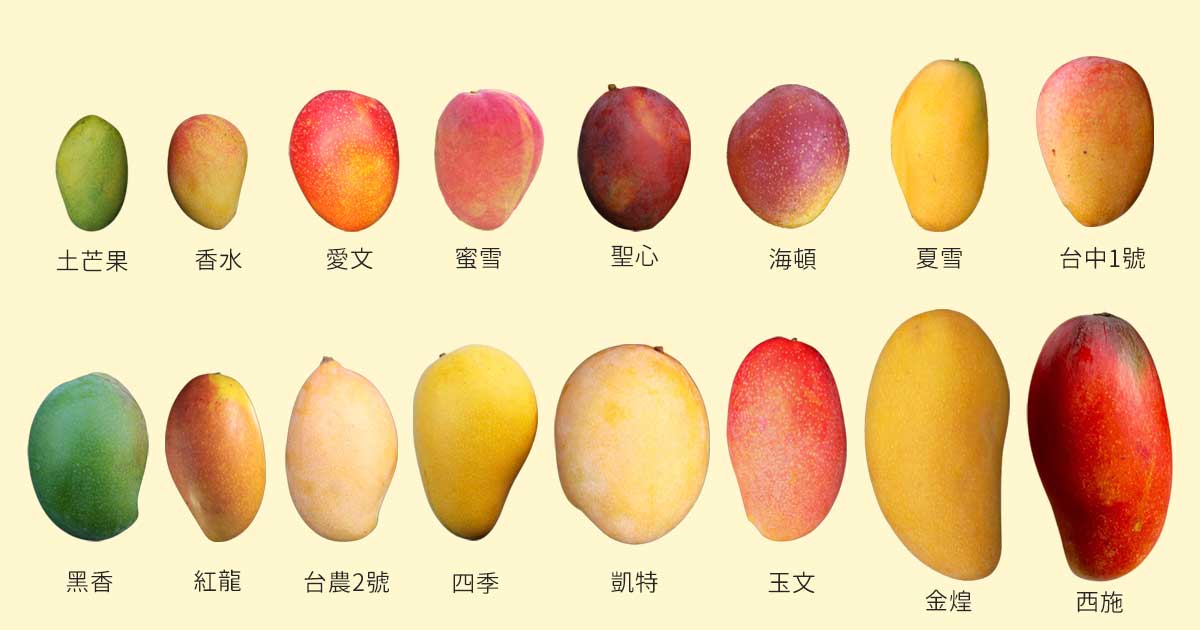幾個常見的芒果品種,探索芒果的健康優勢、多樣品種和適度食用的注意事項,芒果是一種令人垂涎欲滴的水果,不僅口感香甜多汁,而且富含多種營養素,對我們的健康有著許多益處。此外,芒果還擁有多樣的品種,每種都有其獨特的風味和特點。然而,儘管芒果有著豐富的營養價值,但由於個人體質和健康狀況的差異,食用芒果時也需要注意一些禁忌。在本文中,我們將深入探討芒果的功效、不同品種以及食用時應避免的情況。日本丸榮 延時噴霧 , Climax 性高潮延時噴霧 , 高潮萬歲延時噴霧劑持久液 , 黑金日本丸奈持久液延時噴霧 , PEINEILI持久液降敏噴霧

一、芒果的功效
芒果含有豐富的維生素C、維生素A、膳食纖維和抗氧化物質,使其成為一個極富營養價值的水果。以下是芒果的一些主要功效:
提供維生素C:維生素C是一種強大的抗氧化劑,有助於保護細胞免受自由基的損害。芒果中的維生素C有助於增強免疫系統,促進傷口癒合和確保組織的正常生長。
促進眼睛健康:芒果富含維生素A和其他類胡蘿蔔素,這些物質對眼睛健康至關重要。它們有助於保持正常視力、預防夜盲症和眼睛乾燥等問題。
改善消化系統:芒果含有豐富的膳食纖維,有助於促進腸道健康和預防便秘。膳食纖維還可以降低膽固醇水平,預防心臟病和糖尿病等慢性疾病。
保護皮膚:芒果中的維生素C和其他抗氧化物質有助於保護皮膚免受紫外線輻射和自由基的損害。此外,芒果還可以促進膠原蛋白的產生,使皮膚緊緻並提供光澤。
二、芒果品種
芒果的品種繁多,每種品種都有獨特的風味、外觀和成熟時間。以下是幾個常見的芒果品種:
菲律賓芒果:菲律賓芒果以其甜蜜的味道和豐滿的果肉而聞名。這種品種的芒果通常大而肥厚,果實外皮呈金黃色。
阿爾芒果:阿爾芒果是來自印度的一個品種,它的果肉柔軟多汁,口感順滑。這種芒果在成熟時呈橙色,並且帶有甜蜜的香氣。
凱特芒果:凱特芒果是澳大利亞的一個品種,它的果肉濕潤、奶油般柔軟。這種芒果通常呈綠色,成熟時呈金黃色。
阿莫爾芒果:阿莫爾芒果是墨西哥的一個品種,它以其濃鬱的口感和豐富的果肉而聞名。這種芒果呈紅色到橙色,且有著強烈的甜味。

三、芒果禁忌
儘管芒果具有許多健康益處,但對於某些人來說,食用芒果時需要注意以下禁忌:
過敏反應:一些人可能對芒果過敏,尤其是對芒果皮敏感的人。過敏反應可能包括腹瀉、噁心、皮膚紅腫和刺痛等症狀。如果您對芒果過敏,應避免食用芒果或諮詢醫生。
脂肪過敏:某些人可能對芒果中的脂肪過敏。如果出現脂肪過敏的症狀,例如腹痛、腹瀉
高糖血症:芒果富含天然糖分,對於患有高糖血症(糖尿病)的人來說,食用芒果時需要謹慎。他們應該注意控制芒果的攝入量,避免血糖水平飆升。
過量攝入:儘管芒果是健康的水果,但過量食用可能會導致消化不良或腹瀉等問題。適度食用是關鍵,建議每天食用一個中等大小的芒果。

芒果的營養價值是什麼?
解答:
芒果具有豐富的營養價值,包括以下關鍵營養素:
維生素C:芒果是維生素C的良好來源,提供每100克約60毫克的維生素C。維生素C是一種強大的抗氧化劑,有助於增強免疫系統,促進傷口癒合和確保組織的正常生長。
維生素A:芒果也含有豐富的維生素A和類胡蘿蔔素,對眼睛健康至關重要。維生素A有助於保持正常視力、預防夜盲症和眼睛干燥等問題。
膳食纖維:芒果富含膳食纖維,有助於促進腸道健康和預防便秘。膳食纖維還可以降低膽固醇水平,預防心臟病和糖尿病等慢性疾病。
抗氧化物質:芒果中的抗氧化物質,如維生素C、類胡蘿蔔素和多酚化合物,有助於保護細胞免受自由基的損害,從而降低慢性疾病的風險。
矿物质:芒果還含有許多重要的矿物质,如鉀、鎂和鈣。這些矿物质對於維持正常的心臟功能、骨骼健康和神經系統功能至關重要。
芒果是一種營養豐富的水果,具有多種功效和多樣品種。它提供了豐富的維生素C、維生素A、膳食纖維和抗氧化物質,有助於增強免疫系統、促進眼睛健康、改善消化系統和保護皮膚。然而,對於芒果過敏或存在特定健康問題的人來說,需要注意相關的禁忌和限制攝入量。因此,我們應該根據自身情況合理食用芒果,享受其美味和營養價值。
早洩自療法及必利勁藥局 , 早洩治療方法與必利勁膜衣錠30毫克 , 早洩訓練與必利勁膜衣錠 , 早洩怎麼辦?治療早洩及必利勁副作用 , 早洩原因及快速治療方法 , 使用必利勁膜衣錠治療早洩 , 早洩的治療方法與必利勁療程
芒果如何儲存以保持新鮮?
解答:
儲存芒果的正確方法可以延長其保鮮期並確保其保持新鮮的口感。以下是一些儲存芒果的關鍵點:
成熟度:芒果的成熟度對儲存和保鮮至關重要。如果芒果還未成熟,可以將其放在室溫下成熟。一旦成熟,應將芒果儲存在冰箱中,以延長其保鮮期。
貯存溫度:將芒果存放在冰箱中的適當溫度可幫助延長其保鮮期。適宜的溫度範圍為10至13攝氏度(50至55華氏度)。請注意,冷藏芒果的溫度不應過低,因為極低的溫度可能導致芒果受損。
包裝方法:在將芒果放入冰箱之前,應將其放在通風良好的容器中,或使用保鮮袋或保鮮膜包裝。這有助於保持芒果的濕度和防止其與其他食物產生異味。
分開儲存:芒果具有強烈的香味,因此應該避免與其他食物一起存放,以免其香氣相互交叉。
遵循這些儲存建議可以幫助您保持芒果的新鮮和美味,並延長其保存時間。記住,新鮮的芒果更好吃,所以盡量在購買後迅速食用。
Discover the health benefits of mango, its variety and tips for eating in moderation. Mango is a mouth-watering fruit that not only tastes sweet and juicy, but is also rich in various nutrients that have many benefits for our health. In addition, there are many varieties of mangoes, each with its own unique flavor and characteristics. However, despite the rich nutritional value of mango, due to differences in individual physique and health status, some taboos should be paid attention to when eating mango. In this article, we take an in-depth look at the benefits of mangoes, the different varieties, and what to avoid when eating them.
1. The effect of mango
Mango is rich in vitamin C, vitamin A, dietary fiber and antioxidant substances, making it a very nutritious fruit. Here are some of the main benefits of mangoes:
Provides Vitamin C: Vitamin C is a powerful antioxidant that helps protect cells from free radical damage. The vitamin C in mango helps boost the immune system, promotes wound healing and ensures proper tissue growth.
Promotes eye health: Mangoes are rich in vitamin A and other carotenoids, which are essential for eye health. They help maintain normal vision and prevent problems such as night blindness and dry eyes.
Improves Digestive System: Mangoes are rich in dietary fiber, which helps promote intestinal health and prevent constipation. Dietary fiber can also lower cholesterol levels and prevent chronic diseases such as heart disease and diabetes.
Protects the skin: Vitamin C and other antioxidants in mangoes help protect the skin from UV radiation and free radical damage. In addition, mango also boosts collagen production, which tightens the skin and provides radiance.
2. Mango Varieties
There are many varieties of mangoes, each with a unique flavor, appearance and ripening time. Here are a few common mango varieties:
Filipino Mango: Philippine mangoes are known for their sweet flavor and plump flesh. Mangoes of this variety are usually large and fleshy, with a golden-yellow rind.
Al mango: Al mango is a variety from India. Its flesh is soft and juicy, with a smooth taste. This mango is orange when ripe and has a sweet aroma.
Kate Mango: The Kate mango is an Australian variety that has moist, creamy flesh. This mango is usually green in color and turns golden yellow when ripe.
Amor Mango: Amor mango is a variety from Mexico that is known for its tangy taste and rich flesh. www.poxet.tw This mango is red to orange in color and has an intensely sweet taste.
3. Mango taboo
Despite the many health benefits of mangoes, for some people, there are some contraindications when consuming mangoes:
Allergic reactions: Some people may be allergic to mangoes, especially those who are sensitive to the mango skin. An allergic reaction may include symptoms such as diarrhea, nausea, skin redness, and stinging. If you are allergic to mangoes, you should avoid mangoes or consult your doctor.
Fat allergy: Some people may be allergic to the fat in mangoes. If symptoms of fat allergy occur, such as abdominal pain, diarrhea
Hyperglycemia: Mangoes are rich in natural sugars, and people with hyperglycemia (diabetes) need to be cautious when consuming mangoes. They should pay attention to controlling the intake of mangoes to avoid spikes in blood sugar levels.
Excessive intake: Although mango is a healthy fruit, excessive consumption may cause problems such as indigestion or diarrhea. Moderation is key and it is recommended to consume one medium mango per day.
What is the nutritional value of mango?
answer:
Mangoes are rich in nutritional benefits, including the following key nutrients:
Vitamin C: Mangoes are a good source of vitamin C, providing about 60 mg of vitamin C per 100 grams. Vitamin C is a powerful antioxidant that helps strengthen the immune system, promotes wound healing and ensures proper tissue growth.
Vitamin A: Mangoes are also rich in vitamin A and carotenoids, which are essential for eye health. Vitamin A helps maintain normal vision and prevent problems such as night blindness and dry eyes.
Dietary Fiber: Mangoes are rich in dietary fiber, which helps promote intestinal health and prevent constipation. Dietary fiber can also lower cholesterol levels and prevent chronic diseases such as heart disease and diabetes.
Antioxidants: Antioxidants in mangoes, such as vitamin C, carotenoids, and polyphenolic compounds, help protect cells from free radical damage, thereby reducing the risk of chronic diseases.
Minerals: Mangoes also contain many important minerals such as potassium, magnesium, and calcium. These minerals are essential for maintaining normal heart function, bone health and nervous system function.
Mango is a nutritious fruit with many benefits and varieties. It provides a rich source of vitamin C, vitamin A, dietary fiber and antioxidants that help strengthen the immune system, promote eye health, improve the digestive system and protect the skin. However, for people with mango allergies or specific health concerns, there are contraindications and intake restrictions to be aware of. Therefore, we should eat mango reasonably according to our own conditions, and enjoy its delicious taste and nutritional value.
How are mangoes stored to keep them fresh?
answer:
The right way to store mangoes can extend their shelf life and ensure they stay fresh. Here are some key points for storing mangoes:
Ripeness: The ripeness of mangoes is critical for storage and preservation. If the mango is not ripe, it can be left at room temperature to ripen. Once ripe, mangoes should be stored in the refrigerator to prolong their freshness.
Storage Temperature: Storing mangoes at the right temperature in the refrigerator can help prolong their freshness. The suitable temperature range is 10 to 13 degrees Celsius (50 to 55 degrees Fahrenheit). Note that the temperature of refrigerated mangoes should not be too low, as extremely low temperatures can damage the mangoes.
How to pack: Mangoes should be placed in a well-ventilated container or wrapped in a freezer bag or plastic wrap before putting them in the refrigerator. This helps keep the mango moist and prevents it from developing off-flavors with other foods.
Store Separately: Mangoes have a strong aroma, so they should be stored away from other foods so that their aromas do not cross each other.
Following these storage tips can help you keep your mangoes fresh and delicious and last longer. Remember, fresh mangoes are tastier, so try to eat them quickly after purchase.



















